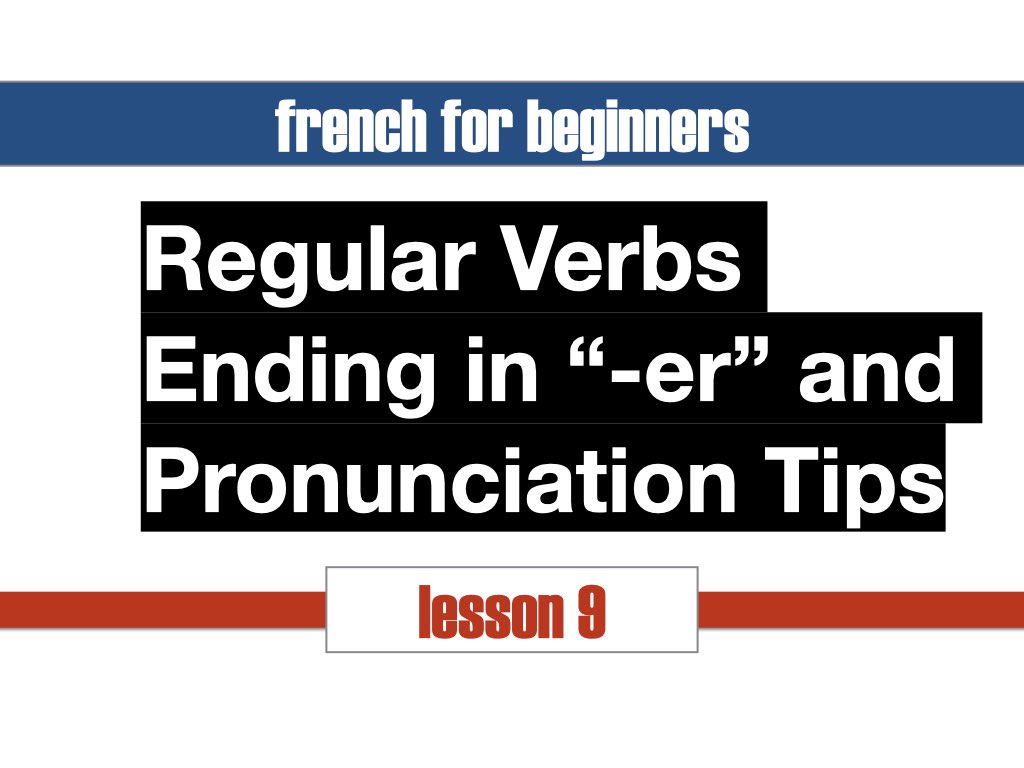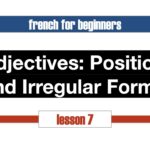The Verb “Avoir” (To Have)
In this lesson, we study one of the basic verbs to express yourself in French. The conjugation of the verb avoir is tricky, and mastering it well is essential. In this lesson, we will first see how to conjugate the verb avoir in the present tense in French and then how to use it simply.
✚ Objectives:
- conjugation of “avoir” ( to have ) in the present tense
- usage of “avoir” in examples
- translation of simple sentences
1. Conjugation of “Avoir”
Observe and repeat the conjugation.
| Subject | Conjugation | Pronunciation | English |
|---|---|---|---|
| j’ | ai | [ ʒɛ ] | I have |
| tu | as | [ ty a ] | You have |
| il / elle | a | [ ila / ɛla ] | He/She has |
| nous | avons | [ nuzavɔ̃ ] | We have |
| vous | avez | [ vuzave ] | You have |
| ils / elles | ont | [ ilzɔ̃ / ɛlzɔ̃ / ] | They have |
pronunciation tip
Be careful with the pronunciation of the plural in three points:
a. You must make the liaison in the plural:
- nous‿avons
- vous‿avez
- ils‿ont
- elles‿ont
b. The endings “s” and “t” are not pronounced
- nous‿avons
- vous‿avez
- ils‿ont
- elles‿ont
c. the ending in -ez is pronounced [e]
- vous‿avez
2. Using “Avoir” with Complements
a. Avoir is followed by a direct object indicating belonging.
“Avoir” is often followed by a direct object complement. Here are some examples:
- J’ai une voiture rouge. I have a red car.
- Ils ont un grand appartement. They have a big apartment.
- Il a un chat. He has a cat.
- Nous avons un problème. We have a problem.
- Vous avez des amis français. You have French friends.
- Elles ont une grande maison. They have a big house.
- Tu as un ami italien. You have an Italian friend.
b. avoir is used in many expressions :
- avoir faim – to be hungry
- avoir froid – to be cold
- avoir soif – to be thirsty
- avoir peur – to be afraid
Examples :
- As-tu faim ? Non, je n’ai pas faim. – Are you hungry? No, I’m not hungry.
- As-tu froid ? Non, je n’ai pas froid. – Are you cold? No, I’m not cold.
🍀 Practice Exercise 🍀
Translation Exercise
Translate these sentences from English to French:
- They have a new house.
- You (formal) have a question.
- She has a beautiful garden.
- They have french friends.
- We are hungry and we are thirsty.
Keywords : avoir french conjugation
- Lesson 1 : Introduction to French – Basic greetings
- Lesson 1. 5 : Introduction – Saying Your Name and the French Alphabet
- Lesson 2 : Numbers from 1 to 20.
- Lesson 3 : Days of the week and months of the year.
- Lesson 3.5 : french pronunciation
- Lesson 4 : Personal pronouns and the verb “to be” (être).
- Lesson 5 : Definite and indefinite articles.
- Lesson 6 : Basic colors and adjectives.
- Lesson 7 : Adjectives: Position and Irregular Forms
- lesson 7.5 Adjective agreement


